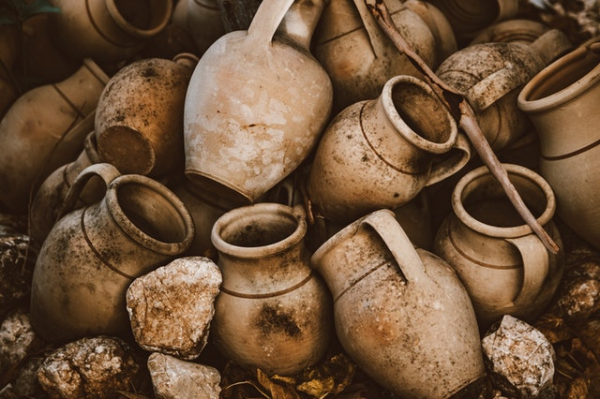
A wine factory, which is estimated to be about 1,500 years old, was excavated in Southern Israel.
The Israel Antiquities Authority (IAA) discovered the facility in Yavne, two years after the excavation began for the city's development project. It is believed to be the largest one during its time period.
Speaking to CBN News, IAA Excavation Director Jon Seligman said that the area was one of the major centers of wine production for international trade.
"This was a white wine, a wine of high quality. It was certainly a prestigious wine. This was a wine that we know was presented during the coronations of Byzantine Kings. Justin the second had wine from this region -- what was called Gazan wine -- presented at his table during his coronation," he added.
Because of its quality, the wine manufactured in Gaza and Ashkelon was marketed through its city ports and brought to the Mediterranean region at the time.
The wine making complex is made up of five winepresses, each of which covers an area of about 2,400 square feet, and four big warehouses.
Based on IAA's calculation, the winepresses were able to produce about two million liters of wine annually. The product was relevant to the people during that period, wherein they would mix it with their drinking water or simply substitute it with the latter.
Seligman, alongside IAA's Dr. Elie Hadad and Liat Nadav-Zir, observed the facility's sophistication, implying that the owners were wealthy.
"We were surprised to discover a sophisticated factory here, which was used to produce wine in commercial quantities. Furthermore, decorative niches in the shape of a conch, which adorned the winepresses, indicate the great wealth of the factory owners," they revealed.
Aside from the winery, the director told The Jerusalem Post that they also made other discoveries, including remains of glass and metal manufacturing industries, a ninth century house and some buildings between the Byzantine and Islamic periods.
Further, the archaeologists unearthed a 2,300-year old wine press, showing that winemaking continued in the city since the Persian period.
"In the Mishna [Jewish oral traditions] it is said that after the destruction of Jerusalem [in 70 CE], the Jewish leadership migrated to Yavne, and that the sages of Yavne lived in a vineyard and studied Torah. The excavation shows a continuum of existence of the wine industry at the site over many centuries," they stated.
Seligman said that Yavne is a Christian town but Samaritans and Jews also lived in the area.
Though they did not find the ancient city center and the remains of churches, they found pieces of marbles and columns which signify their existence.
Thousands of jars, which were used as wine storage, were also dug.
"They have a specific and very recognizable shape. The same jars were found in many places around the region, including Egypt, and we know that they were used for exporting the wine," the director shared.
The site will soon be opened for tours and is already accepting pre-registrations. The IAA is planning to make it an archaeological park.












